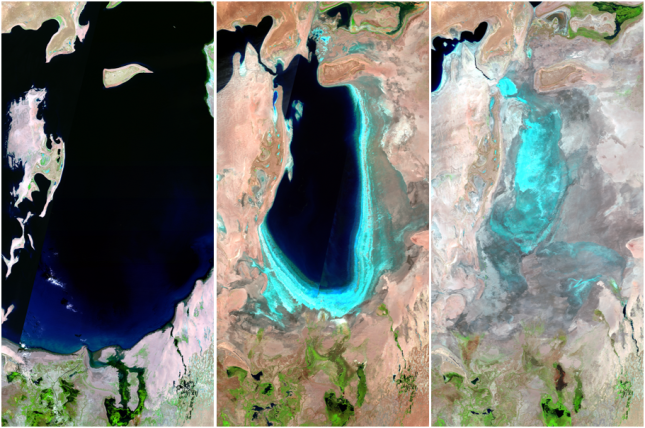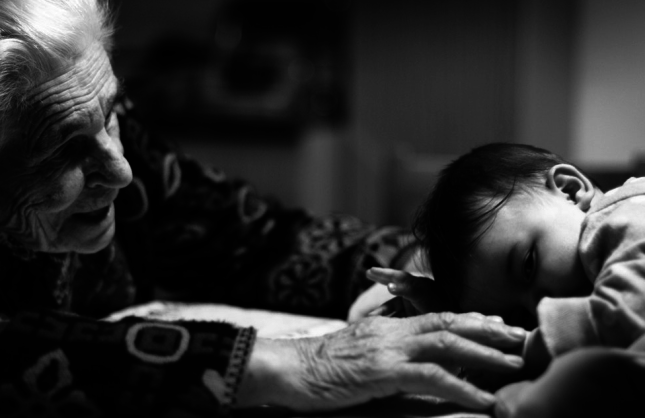-
Savings Mothers, Giving Life Tackled Three Delays to Improve Maternal and Newborn Health
›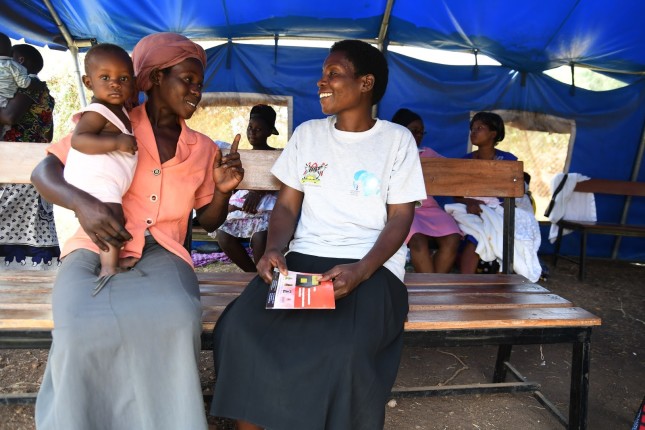
“Saving Mothers, Giving Life has undeniably raised the bar in how we address maternal perinatal mortality,” said Dr. Florina Serbanescu, Team Lead of Global Reproductive Health Evidence for Action at the Centers for Disease Control and Prevention, for the launch of the Global Health: Science and Practice Supplement on Saving Mothers, Giving Life at a recent Wilson Center event. Saving Mothers, Giving Life (SMGL), is a public-private partnership created to reduce maternal and newborn mortality in sub-Saharan African countries. “The achievements show that what is often seen as an intractable problem,” said Serbanescu, “can be addressed with the right leadership, resources, and political will.”
-
Better Water Security Translates into Better Food Security
›
“Food production is the largest consumer of water and also represents the largest unknown factor of future water use as the world’s population continues to balloon, and we face increasing weather-related shocks and stresses,” said Laura Schulz, Acting Deputy Assistant Administrator in USAID’s Bureau for Economic Growth, Education and Environment. She spoke at “Feeding a Thirsty World: Harnessing the Connections Between Food and Water Security,” an event sponsored by the Wilson Center, Winrock International, the Sustainable Water Partnership, and USAID. Currently about 70 percent of global water goes to agriculture, a number that is projected to rise “as high as 92 percent,” said Rodney Ferguson, the President and CEO of Winrock International.
-
Ambassador Marcia Bernicat on the U.S. Global Water Strategy
› The overarching goal of the U.S. Global Water Strategy is to create a more water secure world, said Ambassador Marcia Bernicat, Principal Deputy Assistant Secretary for the Bureau of Oceans, and International Environmental and Scientific Affairs at the U.S. Department of State at a recent Wilson Center event. “Simply put,” she said, “a world where people have the water they need, where they need it, when they need it, without living in fear of floods or droughts.”
The overarching goal of the U.S. Global Water Strategy is to create a more water secure world, said Ambassador Marcia Bernicat, Principal Deputy Assistant Secretary for the Bureau of Oceans, and International Environmental and Scientific Affairs at the U.S. Department of State at a recent Wilson Center event. “Simply put,” she said, “a world where people have the water they need, where they need it, when they need it, without living in fear of floods or droughts.” -
The Global Care Tilt: Migrant Caregivers Flock to Wealthy Countries to Meet Rising Demand
›
With rapidly aging populations and rising levels of female employment, the United States and other wealthy nations are facing unprecedented demands for non-familial care. These nations vary in their ability to address such demands. Those with more robust welfare states, including publicly supported, high-quality child care and elder care services and facilities, are generally able to meet growing needs for care, while those with weaker welfare states experience severe “care deficits,” leaving families with few alternatives. Increasingly, in the United States and elsewhere in the developed world, families are turning to migrants—usually women—to solve their care dilemmas.
-
From Joseph Kony to Nile Perch: Complex Links Hook Armed Conflict to Fisheries
›
In “Africa’s smallest war,” both Kenya and Uganda lay claim to Migingo Island, a tiny island in the waters of Lake Victoria. While the claims are over the island, the conflict is about something else entirely: Lates niloticus, also known as Nile perch, a tasty white fish that swims in the waters surrounding the island. The fish forms the backbone of the Lake Victoria economy but is increasingly hard to come by along the lakeshore. Catches are in decline, incomes are dropping, and the Ugandan government is taking increasingly harsh, militarized steps to help revive the fishery.
-
A Look Downstream: Thoughtful Water Infrastructure Planning May Yield Economies of Flexibility
› Three big trends are coming, said Ken Conca, Professor at American University’s School for International Service at a recent Wilson Center event that explored the future of water. “We’ll be storing a lot more water,” he said. “We’ll be recycling a lot more water. And we’ll be thinking much more systematically and foundationally about flood risk.”
Three big trends are coming, said Ken Conca, Professor at American University’s School for International Service at a recent Wilson Center event that explored the future of water. “We’ll be storing a lot more water,” he said. “We’ll be recycling a lot more water. And we’ll be thinking much more systematically and foundationally about flood risk.” -
The MEDEA Legacy: Darkened Data Shed Light on a Changing Planet and Environmental Security
›March 27, 2019 // By Evan Barnard
In 2018, California experienced its most destructive wildfires in history. Satellite imagery shared by NASA scientists helped firefighters track fires and map damage by comparing satellite images documenting changes to the Earth’s surface. These types of images existed for decades but were classified for military purposes until the government program MEDEA identified their potential benefit and advocated for public access in the 1990s. According to former National Oceanic and Atmospheric Association (NOAA) Chief Scientist and MEDEA member Richard Spinrad, “the systems that might be used for early detection of a missile launch may work equally well for detection of wildfires.”
-
The Juggling Act of Caregiving: Balancing Career, Health, and Gender Roles (New Report)
›
“Caregiving for the young, elderly, sick, and disabled is a necessary part of human existence, but is often undervalued and excluded from policy agendas.” –The Juggling Act of Caregiving: Balancing Career, Health, and Gender Roles
In The Juggling Act of Caregiving: Balancing Career, Health, and Gender Roles, Sarah B. Barnes, Project Director of the Maternal Health Initiative, describes the role of, the trends surrounding, and the challenges associated with caregiving in the United States.
Showing posts from category featured.


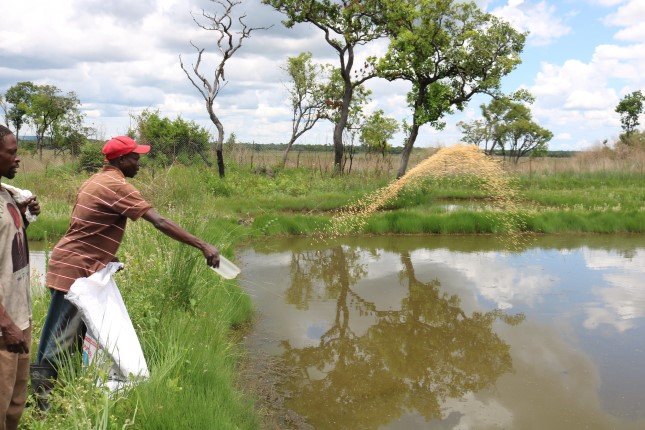
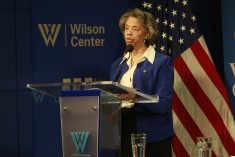 The overarching goal of the U.S. Global Water Strategy is to create a more water secure world, said Ambassador Marcia Bernicat, Principal Deputy Assistant Secretary for the Bureau of Oceans, and International Environmental and Scientific Affairs at the U.S. Department of State at a recent Wilson Center
The overarching goal of the U.S. Global Water Strategy is to create a more water secure world, said Ambassador Marcia Bernicat, Principal Deputy Assistant Secretary for the Bureau of Oceans, and International Environmental and Scientific Affairs at the U.S. Department of State at a recent Wilson Center 
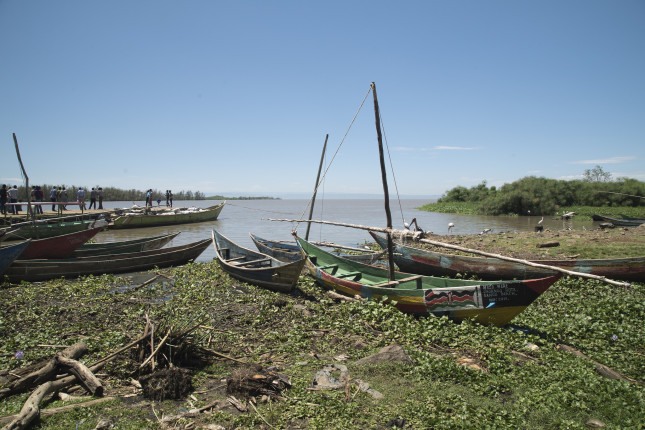
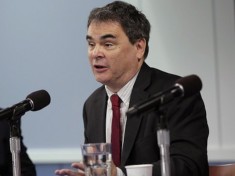 Three big trends are coming, said Ken Conca, Professor at American University’s School for International Service at a recent Wilson Center
Three big trends are coming, said Ken Conca, Professor at American University’s School for International Service at a recent Wilson Center 